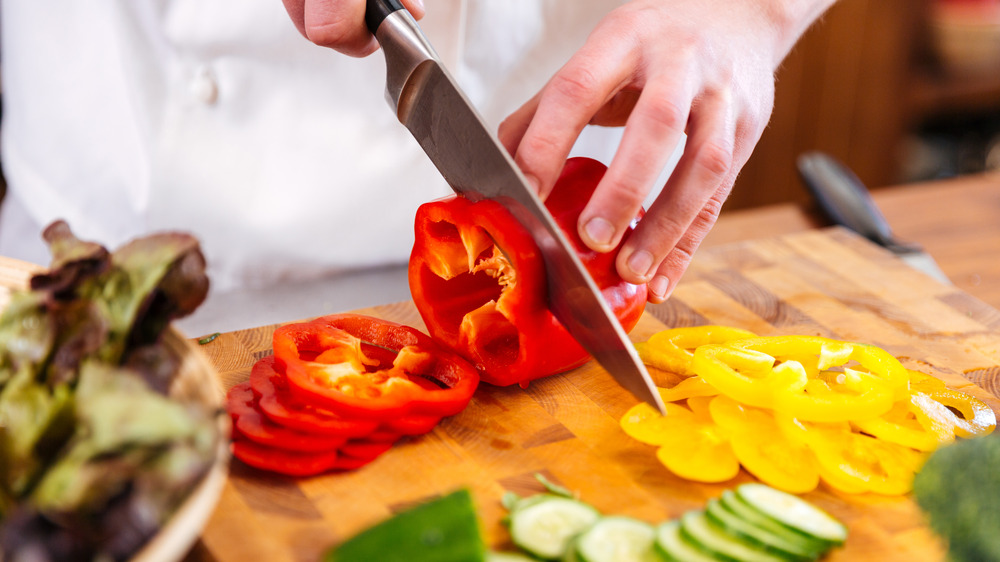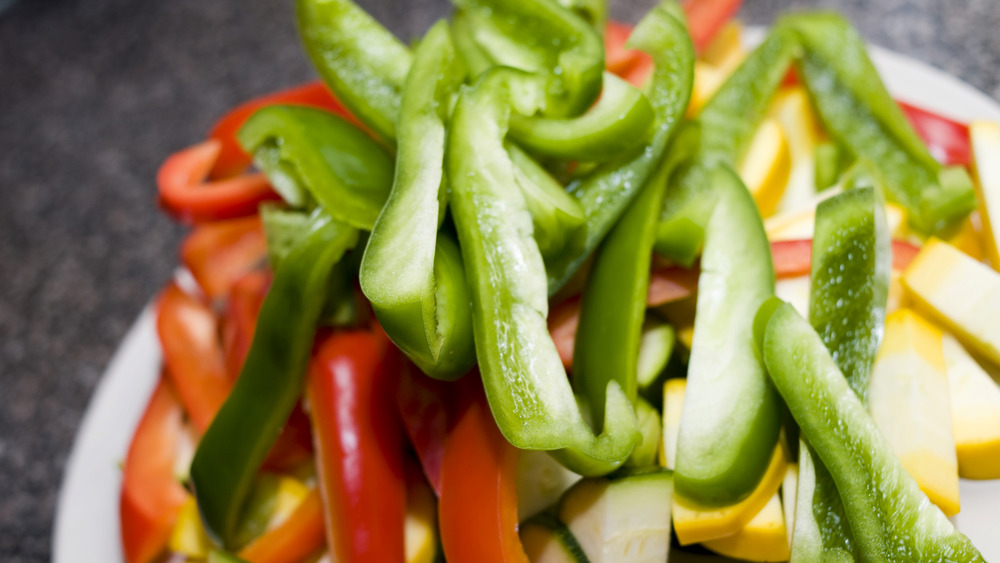You've Been Cutting Bell Peppers Wrong Your Entire Life
When people think food waste, they typically think of things like leftover takeout gone bad or a head of lettuce that sat in your produce drawer for a bit too long. But there's likely a whole lot more food waste occurring in the everyday kitchen, starting the second you get to cooking. According to the 2021 Food Waste Guide from RTS, an upwards of 40 percent of food supply in the U.S. is wasted each year. Even more startling? RTS reports that "the average American family of four throws out $1,600 a year in produce."
If you've ever tried to cut a bell pepper, then you've likely contributed a good bit to that waste, whether you knew it or not. No matter which way you slice it, bell peppers are awkwardly shaped and tricky to cut without leaving a little bit behind on the trimmings (and in the garbage bin). Say you're making stuffed peppers: If you cut off the top like a cap and toss it, you lose out on a significant portion of perfectly good pepper. And if you don't? You might be struggling with your kitchen knife for some time, trying to get the perfect julienned slices.
But, as with most everyday nuisances in recent years, TikTok may just have the answer.
This is the best way to cut your peppers to save on waste
TikTok user @goldilocks.bears.x recently shared a video of their top food hack favorites, but this pepper one is blowing some minds. According to Taste of Home, this TikTok trick may save you time in the kitchen, but it'll likely help cut down on food waste, too.
Start by flipping the pepper upside down. Then, slice downward on each of the indentations (but don't fully cut through the bottom). Peel the four sides back and you're left with the seeds in the center, like you just cut an apple and got to the core. From here, you can trim off any remaining pepper at the bottom and slice or dice each piece as needed.
As for what to do with the bits you have left after trimming your peppers the TikTok way? Consider composting! Apartment Therapy explains that all portions of a pepper — even the pith and the seeds — are 100 percent compostable. Cutting down on produce waste, lightening up your weekly trash load, and you get to chow down on a pepper-filled Philly Cheesesteak? Sounds like a win-win-win.

